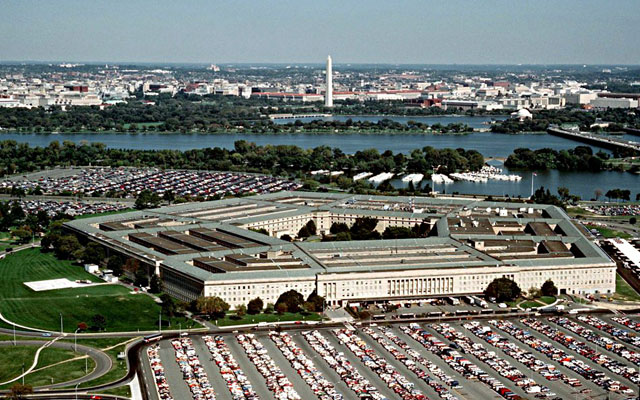The Danger of Defense Cuts: North Korea Just a Reminder
Nick Zahn /
Amidst increased sequestration cuts and North Korean threats of hostility, U.S. Secretary of Defense Chuck Hagel expressed deep concern on Thursday over the increased danger that North Korea now poses requiring the U.S. to be prepared for “any eventuality.”
Hagel’s concern is in agreement with Heritage Foundation expert Bruce Klingner, who the previous evening wrote that “[t]he danger of North Korean miscalculation has increased further with new North Korean leader Kim Jong-un emboldened by recent nuclear and missile test successes and the knowledge that Seoul and Washington have never struck back in any significant way after previous deadly attacks.”
Klingner capped off his 20-year career at the CIA as Korea Deputy Division Chief, where part of his responsibility was to monitor the tenuous armistice on the peninsula and provide early warning to senior U.S. government officials of impending danger on the peninsula. And while it is unknown exactly when the next North Korean attack will occur, South Korea has justly declared that they no longer are willing to keep taking it on the chin.
South Korean rules of engagement have changed, and President Park Geun-hye and her senior military leadership have pledged to respond strongly to the next attack from the North. Further, the March 22 U.S.–South Korea Combined Counter-Provocation Plan is an affirmation that when responding to an attack from the North, the U.S. and South Korea militaries will remain true to the motto “katchi kapasida” and will fight together.
The increased danger unfolds amid defense cuts that sapped U.S. readiness even before sequestration took effect on March 1. Klingner points out that, although Deputy Secretary of Defense Ashton Carter during his mid-March travel in Asia attempted to assure allies of a continued strong U.S. military presence in spite of cuts, Carter and senior defense officials, including the Secretary of Defense, had earlier objected to sequestration on the grounds that it would mean a disastrous decrease in military capability. The product of the Obama Administration’s backtracking is uncertainty in the minds of friends and foes alike on the question of whether the U.S. has the ability to live up to its commitments.
But not all reversals have to ring hollow.
Two weeks ago the Administration rightly reversed its previous decision to cut 14 ground-based interceptors from missile defense based in Alaska. These defenses provide a margin of protection against the ever-increasing missile threat that North Korea poses to the continental United States. As Secretary Hagel said in support of the move, “[Y]ou only need to be wrong once.”
But missile defense isn’t the only military capability that the Obama Administration has wrongly shorted. It is of urgent necessity that additional reversals be made to provide substance to what has become clear to many is an otherwise empty “pivot” to Asia. As threats to regional stability increase, U.S. capability at the least must stay on par. But instead we are falling behind.
The bottom line is that as U.S. capability erodes, warfighters will be unable to provide the necessary credible deterrence to maintain peace—not just on the Korean peninsula, but elsewhere in the world where the U.S. has critical national interests. Nor in a conflict will they be assured victory with the least possible U.S. and allied casualties.
Secretary Hagel is right to be concerned about the reality of the situation in Northeast Asia. As he contemplates the imminence of “any eventuality” of conflict on the Korean peninsula or around the globe, a realistic assessment must recognize the consequences of the deterioration of U.S. capabilities and needed reversals to the dangerous budgetary path the Administration has set upon.
The American people, our friends, and most importantly our foes should never doubt that we have the capacity to fulfill our commitments.

